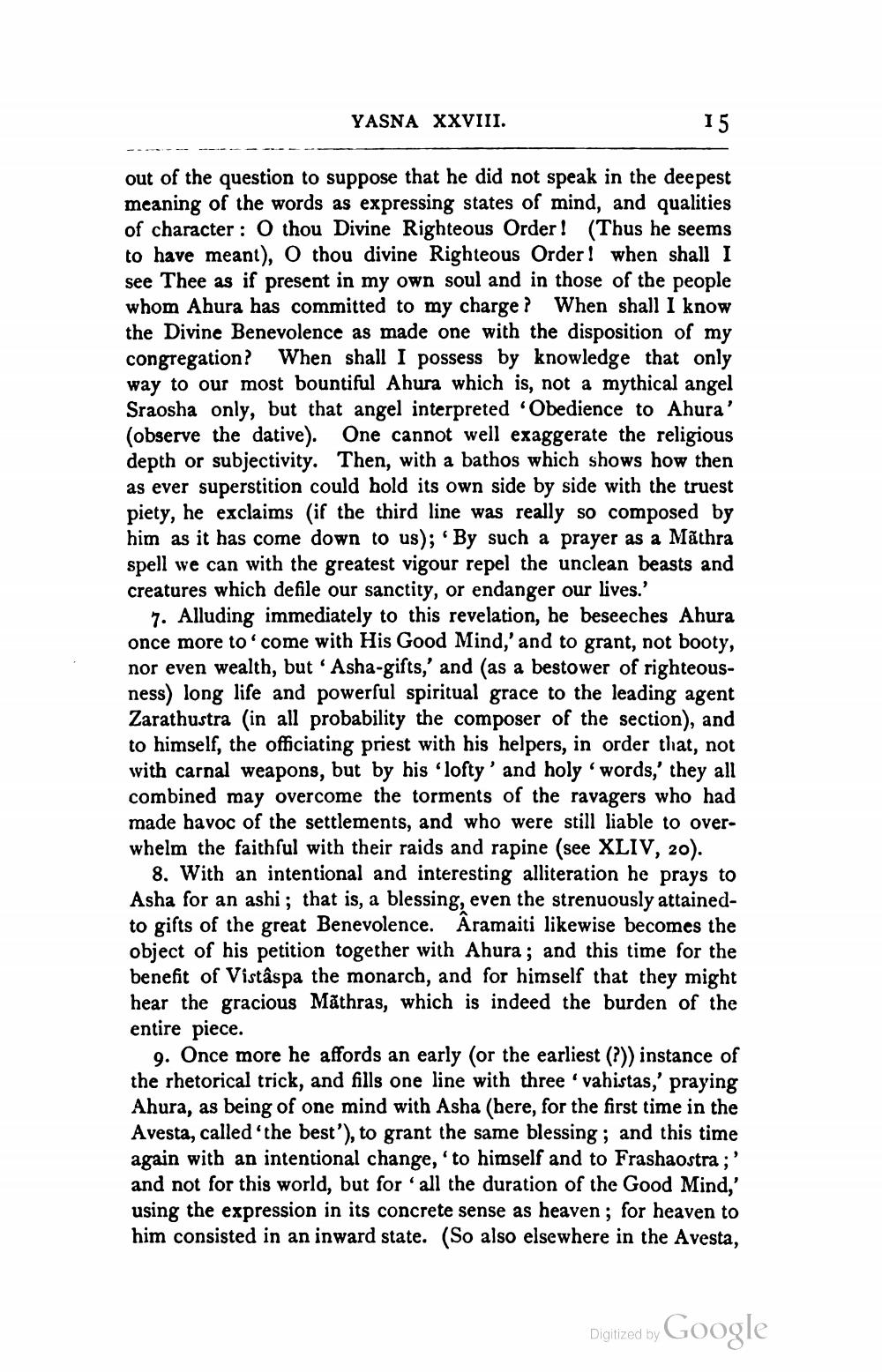________________
YASNA XXVIII.
15
out of the question to suppose that he did not speak in the deepest meaning of the words as expressing states of mind, and qualities of character: 0 thou Divine Righteous Order! (Thus he seems to have meant), O thou divine Righteous Order! when shall I see Thee as if present in my own soul and in those of the people whom Ahura has committed to my charge? When shall I know the Divine Benevolence as made one with the disposition of my congregation? When shall I possess by knowledge that only way to our most bountiful Ahura which is, not a mythical angel Sraosha only, but that angel interpreted 'Obedience to Ahura' (observe the dative). One cannot well exaggerate the religious depth or subjectivity. Then, with a bathos which shows how then as ever superstition could hold its own side by side with the truest piety, he exclaims (if the third line was really so composed by him as it has come down to us); "By such a prayer as a Máthra spell we can with the greatest vigour repel the unclean beasts and creatures which defile our sanctity, or endanger our lives.'
7. Alluding immediately to this revelation, be beseeches Ahura once more to come with His Good Mind,' and to grant, not booty, nor even wealth, but 'Asha-gifts,' and (as a bestower of righteousness) long life and powerful spiritual grace to the leading agent Zarathustra (in all probability the composer of the section), and to himself, the officiating priest with his helpers, in order that, not with carnal weapons, but by his lofty' and holy 'words, they all combined may overcome the torments of the ravagers who had made havoc of the settlements, and who were still liable to overwhelm the faithful with their raids and rapine (see XLIV, 20).
8. With an intentional and interesting alliteration he prays to Asha for an ashi ; that is, a blessing, even the strenuously attainedto gifts of the great Benevolence. Aramaiti likewise becomes the object of his petition together with Ahura ; and this time for the benefit of Vistâspa the monarch, and for himself that they might hear the gracious Măthras, which is indeed the burden of the entire piece.
9. Once more he affords an early (or the earliest (?)) instance of the rhetorical trick, and fills one line with three vahistas,' praying Ahura, as being of one mind with Asha (bere, for the first time in the Avesta, called the best), to grant the same blessing; and this time again with an intentional change,'to himself and to Frashaostra ;' and not for this world, but for all the duration of the Good Mind,' using the expression in its concrete sense as heaven; for heaven to him consisted in an inward state. (So also elsewhere in the Avesta,
Digitized by
Digitized by Google




